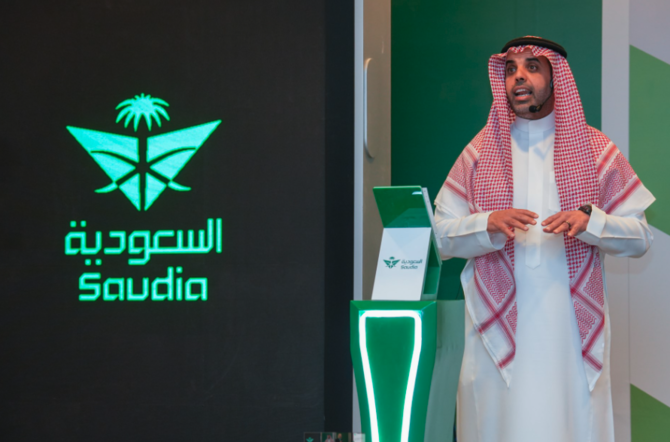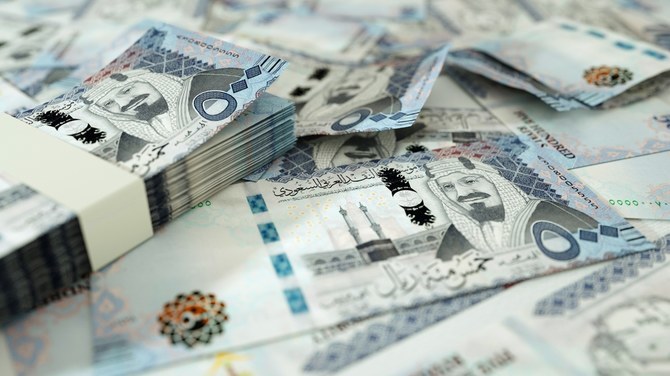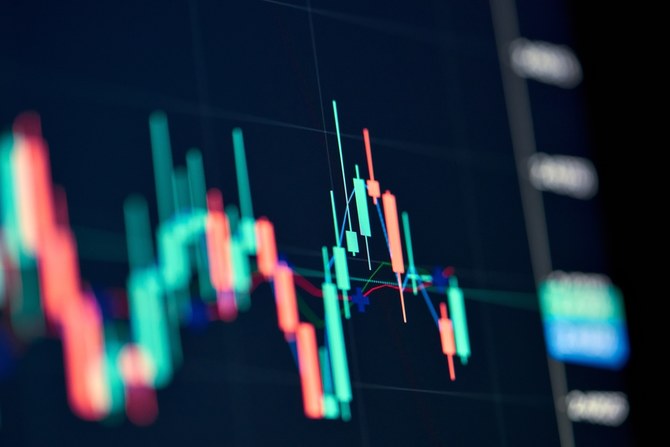LONDON: After months of relative calm in cryptocurrency markets, bitcoin exploded back into life in April with its sharpest price jump in over a year — but few people could convincingly explain why.
The 20 percent leap focused investors’ attention on one of the enduring mysteries of cryptocurrencies: What moves the price of an emerging asset in an opaque, largely unregulated market?
For some, the answer lies on social media. Hedge funds and asset managers seeking an edge are training computers to scrape social media sites for triggers that could move the price of digital currencies.
Their goal: Crafting algorithms capable of picking out price “signals” from the background noise of sites ranging from Reddit and WeChat to Twitter and Telegram.
Many investors already use computer models to identify, and trade, price differences across hundreds of cryptocurrency trading exchanges.
But with opportunities for arbitrage narrowing as the nascent sector develops, big players are increasingly looking to build or buy more sophisticated robots to find market-moving signals online, according to interviews with six hedge funds and asset managers and three software developers.
Yet while the use of algorithms, or algos, for parsing social media may be growing, some of those interviewed said major challenges and risks remain to their wider deployment, from cost to complexity.
“It’s an arms race for money managers,” said Bin Ren, CEO of Elwood Asset Management, which specialises in digital assets and is owned by Brevan Howard founder Alan Howard.
“Very few players are able to implement and deliver it, but I believe it is highly profitable.”
Such “sentiment analysis,” as computer-driven reading of the social media mood is known, is used as a tool in traditional markets such as equities and foreign exchange to trade on consumer feelings towards a company or asset.
But it could be of greater significance in cryptocurrency markets, where there are few authoritative sources of information, such as central banks, scarcely any reliable data to gauge asset value such as economic indicators and financial statements, and a high proportion of individual investors.
It is also early days for the technique in the crypto sector, with scant industry-wide data on performance and many questions over its effectiveness. None of the institutions Reuters spoke to would give details of the performance of their algorithms, citing commercial confidentiality.
To be sure, digital currencies do share some drivers with traditional markets such as comments by policymakers. Bitcoin can be sensitive to remarks by regulators in particular: It fell sharply last week after the US Federal Reserve chief called for a halt to Facebook’s planned Libra cryptocurrency project.
But given cryptocurrencies have been entwined with the Internet from their dawn a decade ago, when the word was spread in forums and chatrooms, it would seem to make sense to search for price triggers online.
Still, it is far from cheap or simple to design an algorithm that can find market-moving signals in the cacophonous world of social media, analysing huge numbers of posts in dozens of languages while sifting out unreliable information.
Andrea Leccese, president of Bluesky Capital, an investment firm in New York, said upfront costs for a robot capable of only reading Twitter in English were between $500,000 to $1 million, with most of the money spent on skilled developers. That has deterred Bluesky from using the technique, he said.
One daunting challenge is the sheer number of social media channels. Beyond Twitter, sites often used by cryptocurrency aficionados include Telegram, a messaging app with public channels and Reddit, a messaging board.
In Asia, home to many retail traders, apps such as Line in Japan and Kakao in South Korea are popular.
Tens of thousands of comments on cryptocurrencies are pumped out around the clock across both national and international channels.
Reddit’s main forum, or subreddit, for bitcoin alone has 1.1 million members. Twitter also sees tens of thousands of posts mentioning bitcoin every day, with between 14,000 and 32,000 daily for the last three months, according to the BitInfoCharts website.
In an attempt to extract meaning from this mayhem, algorithms use so-called natural language processing — identifying key words and emotions that indicate changes in how social media users view certain digital currencies.
Investors using algorithms say that they can also identify patterns for information that gains traction online. “The information propagates not randomly, but through a very well-defined structure — it’s like a tree,” said Elwood’s Ren, which has used sentiment analysis for nearly two years after developing its own software.
“It’s very similar to modelling the spreading of a virus.”
Other investors emphasised the challenges in teaching machines to spot biased or inaccurate information.
A Reuters report last November found that many social media users take money for positive reviews of digital coins.
BitSpread, a cryptocurrency asset manager based in London and Singapore, uses its own capital to trade using an algorithm it started developing about a year ago, its CEO Cedric Jeanson told Reuters.
It is a relatively narrowly targeted software. Aggregating Twitter feeds, it looks out for posts on the liquidation, or closing, of positions at exchanges.
“It’s a matter of gathering all the info, trying to understand who is trading where, what kind of liquidation can appear,” he said. “It’s a strategy that makes sense.”
However, he acknowledged the drawbacks.
“The sentiment itself, what we see on Twitter, can be really geared towards fake news. We are always very cautious about what we’re reading in the news because, most of the time, we’ve seen that there’s a bias.”
Many algorithms use machine learning, where they are supposed to improve through experience and better understand how social media posts translate into market movements.
Developers often identify key people with outsized voices and large numbers of followers to weight more heavily in their algorithm, said Bijan Farsijani of Augmento, a Berlin-based startup that launched an algo for sentiment analysis last month.
He said a number of hedge funds had bought the software from his company since the launch.
Background: Bitcoin’s wild ride
Bitcoin, the biggest cryptocurrency and a bellwether for the sector, has surged more than 180 percent this year, driving up the interest of bigger investors from trading firms to hedge funds.
Bitcoin’s most recent rally, last month, was seen by analysts as driven by expectations for a wider adoption of cryptocurrencies driven by Facebook’s Libra.
That move was mirrored by a surge in interest online. Google searches for cryptocurrencies hit their highest level in three months on June 18, when Facebook made the announcement.
It is, however, difficult to pinpoint the chicken and the egg: online chatter or price moves.
“There may be some value in sentiment analysis in crypto, but most of the time what people tweet may be a lagging indicator of the price move,” said Leccese of Bluesky Capital.
“But there is potential,” he added. “People will start looking at this more in the next five to 10 years because there will be diminishing returns because of increased competition in traditional strategies.”
While there is a lack of data specifically for this technique, “quantitative” cryptocurrency funds — which use methods from arbitrage to sentiment analysis — significantly outperformed funds that make longer-term bets in the first quarter of this year, a PwC report shows.
Coders say that they are in increasing demand.
Taiwan-based Marc Howard teamed up with more than 500 machine-learning experts to crowdsource sentiment analysis algorithms, bringing in data from sources including Google Trends, Reddit and development platform GitHub.
Howard said his bitcoin investments using an algorithm beat funds simply tracking the price of the cryptocurrency by 54 percent in the year to June 24, adding that funds in New York and Taipei had tapped him for help in developing their own analysis.
“It’s pretty hot right now,” he said. “Any fund that’s worth their salt, they are devoting some of their resources and allocation for sentiment analysis.”





















